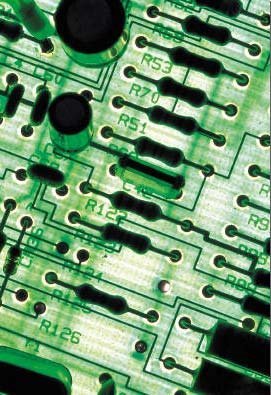Quake-related plant shutdowns hit supplies of electronics components

Opel called a 24-hour production stop for next Monday and an eight-hour halt next Friday at its plant in Saragossa, Spain, due to the lack of an electronic item which had not arrived from Japan. Unions say about 2,400 cars will not be made during the stoppage.
Renault said it would cut output at its factory in Busan, South Korea, by 15% to 20% after disruptions to Japanese supplies mainly affecting the Renault-owned Samsung SM7. The factory normally produces 20,000 vehicles per month.
"Production should go down by 15 to 20 percent, corresponding to 3,000 fewer cars," said a Renault spokesman. "We hope a solution will be found rapidly."
Plant shutdowns across Japan following the earthquake, tsunami and nuclear crisis threaten supplies of everything from semiconductors to car parts for manufacturers across the globe.
Even where factories in Japan are operating, there are power outages, shortages of fuel and raw materials and ruptured logistics mean products and parts face delays in getting to customers.
Toyota, Honda, Nissan struggle
Toyota, Honda and Nissan all suspended domestic auto production until at least March 16, and until March 22 in Honda's case. Toyota may lose as much as $72 million for each day of lost production, according to a Goldman Sachs estimate.
Nissan has enough parts in stock at European plants to run for about six weeks, Senior Vice President Andy Palmer said. "I think the impact on our overseas facilities is going to be pretty minimal," he said, adding that supplies of parts had left Japan by boat before the earthquake hit.
GM said it would temporarily idle a U.S. pick-up truck plant in Louisiana, where it builds the Chevrolet Colorado and GMC Canyon models, due to a parts shortage.
"Like all global automakers, we will continue to follow the events in Japan closely to determine the business impact," GM said in a statement on Thursday.
North American output is likely to be affected unless Japanese suppliers revive their plants and send parts within 10 days, Wolfe Trahan & Co analyst Tim Denoyer said in a note.
While Ford hasn't experienced any parts disruptions so far, "We are still working with our Tier 1 suppliers, who are in turn assessing the Tier 2 supply base," spokesman Todd Nissen said.
Sanyo Electric Co. supplies the nickel-metal battery packs for Ford's Fusion hybrid sedan that's assembled in Mexico. "Sanyo supplies our hybrid batteries from Japan," Nissen said. "We have not had any supply disruptions at this point but, like the rest of the supply base, Sanyo is continuing to assess the situation."
Volvo Cars, the Swedish carmaker owned by China's Zhejiang Geely Holding Group Co., buys about 10 percent of its components from Japan, spokesman Per-Ake Froberg said. "Our production won't be affected this week, but then we'll see," he said.
Global electronics supply chain
Japan, a top global supplier to the electronics and auto industries, may need weeks to recover lost output from the Asian country's strongest earthquake on record, according to Barclays Capital.??
"Suppliers' production stoppages could easily affect global production for these automakers, given that several of the affected component plants supply the (carmakers') facilities around the world with systems and components that may not easily be shifted to other manufacturing locations," IHS Automotive said in a report.
"Disruption to production of parts that are unique and cannot be easily shifted has the potential to hit output badly at several automakers in the near term."
Japan's grip on the global electronics supply chain is causing particular concern. The world's third-biggest economy exported 7.2 trillion yen ($91.3 billion) worth of electronic parts last year, according to Mirae Asset Securities.
"Should the Japan crisis be prolonged, I expect a shortage of electronic parts in the second quarter," said James Song, an analyst at Daewoo Securities, noting Japan provides 57 percent of the world's wafers, used to make the chips that go into mobiles phones, cameras and other electronic devices.
Related News


